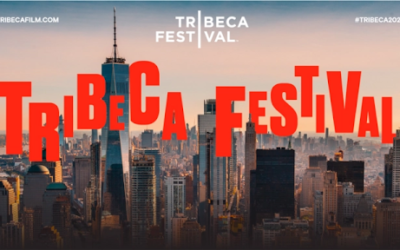Source: Variety
If there is one complaint that has been repeatedly thrown at the Academy Awards (as well as other film awards ceremonies that attempt to have that same level of high status) in recent memory, it’s that the films selected are not those that the general public are very familiar with. Looking over past ceremonies and which films have been chosen for these awards and nominations, it’s not hard to see where these criticisms are coming from. Although a mainstream hit may appear every now and then, most of the films nominated for Best Picture and some of the more highly coveted awards tend to be independent works that rarely make more than a few tens of millions of dollars at the box office. This has caused some to label the Academy and other organizations as “pretentious” and not reflective of what is generally considered to be “good”. This wasn’t always the case though; earlier decades saw such films as “The Sound of Music” and “Titanic” be both the highest-grossing films of their years and the winners of Best Picture at the following Oscars. However, the last film to achieve this feat, Peter Jackson’s “The Lord of the Rings: The Return of the King”, came all the way back in 2003; in the nearly two decades since, the gap between popular films and award-winning films seems to have only gotten wider.
To the Academy’s credit, some effort has been made over the past few years to appease these complaints, but such efforts have not always led to satisfactory results. For example, after films like “The Dark Knight” and “WALL-E” were denied Best Picture nominations back in 2009, the Academy announced that the number of Best Picture nominees per year would be expanded to at least ten, a move that would theoretically allow more popular fare a chance of being included. This tactic has worked to some degree – the following year even saw such high-grossers as “Up” and “Avatar” be among the Best Picture nominees – but none of them have even come close to winning the award, as more often than not, the Academy has continued to opt for smaller, independent fare that general moviegoers may not have even heard of. Even less successful was an attempt in 2019 to introduce a category for “most popular film”, a move that was met with immediate backlash from those who felt that such a category would segregate such films from the Best Picture category and inadvertently deem them “inferior” to what the Academy deems to be quality filmmaking. Needless to say, it didn’t take long for the Academy to immediately pull the award, and the struggle to appeal to general audiences without sacrificing integrity remained.
This issue reared its head once again when the latest round of Academy Award nominations, those for the films of the year 2021, were announced. Many took issue with the absence of “Spider-Man: No Way Home”, easily the biggest money-maker of the year and a film mostly lauded by critics and audiences, in the Best Picture category as well as several other major awards (with the exception of Best Visual Effects, one of the few categories where blockbusters are regularly acknowledged). Even independent filmmaker/comic book media fan Kevin Smith was upset with the lack of “Spider-Man” among the nominees, criticizing the Academy for being out of touch with the common people. Whether or not the Academy is choosing to respond specifically to Smith’s accusation with their latest announcement is unknown at this time, but once again, the organization is making a more noticeable effort to highlight more popular films and generate interest from the average moviegoer. Their plan this time around: allow the people to vote on their own Best Picture of 2021.
On Monday, February 14th, the Academy of Motion Picture Arts and Sciences gave the world a special Valentine’s Day present by announcing a new category that would be decided by social media users and those who use such platforms to express their love for movies. By including the #OscarFanFavorite and #Sweepstakes tags in a post, any Twitter user can let the Academy know which film they personally consider to be the best of 2021, and whichever film accumulates the most posts of this kind will be announced as the winner live at the upcoming Academy Awards ceremony. Up until March 3rd will Twitter users (and those who choose to vote directly on the Academy website) be allowed to post their votes, with each user being allowed to vote up to twenty times per day, and any film regardless of whether it has any Oscar nominations or not will be considered for the award.
In this announcement, Academy digital marketing vice president Meryl Johnson expressed great optimism that this new feature of the Oscars will be a great success. “We’re thrilled to partner with Twitter to help build an engaged and excited digital audience leading up to this year’s ceremony,” Johnson claims. “The Oscars are an opportunity to bring people around the world together through their shared movie love, and through these activations social media users around the world now have more opportunities to engage with the show in real-time, find a community and be a part of the experience in ways they’ve never been able to before.”
In addition to this new “best picture” award, a second category for what is being called the #OscarsCheerMoment will also be featured at this year’s Oscar, which will be voted on in a similar manner to the #OscarsFanFavorite award. Both awards will also come with their own contest in which a small handful of random Twitter users will each receive a major prize of their own; for voting in the #OscarsFanFavorite category, three random voters will receive a free trip to Los Angeles and be allowed to present an award at next year’s Oscars ceremony, while five voters in the #OscarsCheerMoment will receive such prizes as free movie tickets/streaming subscriptions for a whole year and/or exclusive Academy Museum Store items.
Will the general public be willing to take part in this (seemingly) bold new experiment the Academy is conducting? Or will they write it off as yet another pitiful attempt to appear relevant without having to make any real systemic change? There’s enough evidence to suggest there’s truth on both sides of the argument, but one will have to wait until the Academy Awards actually take place to know for sure.




